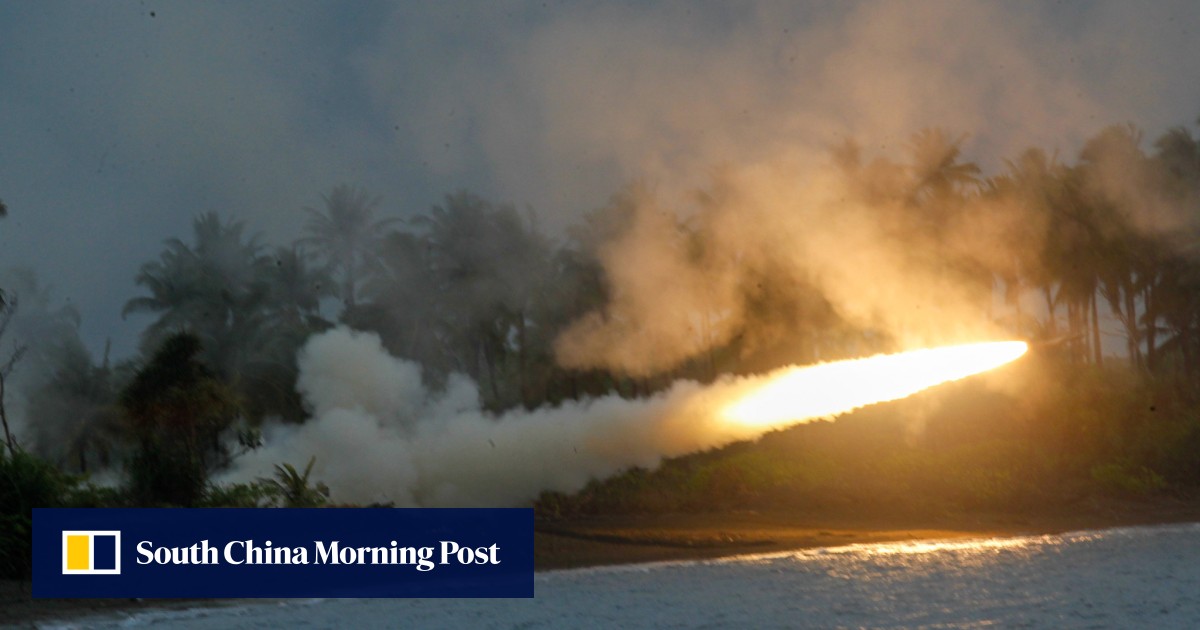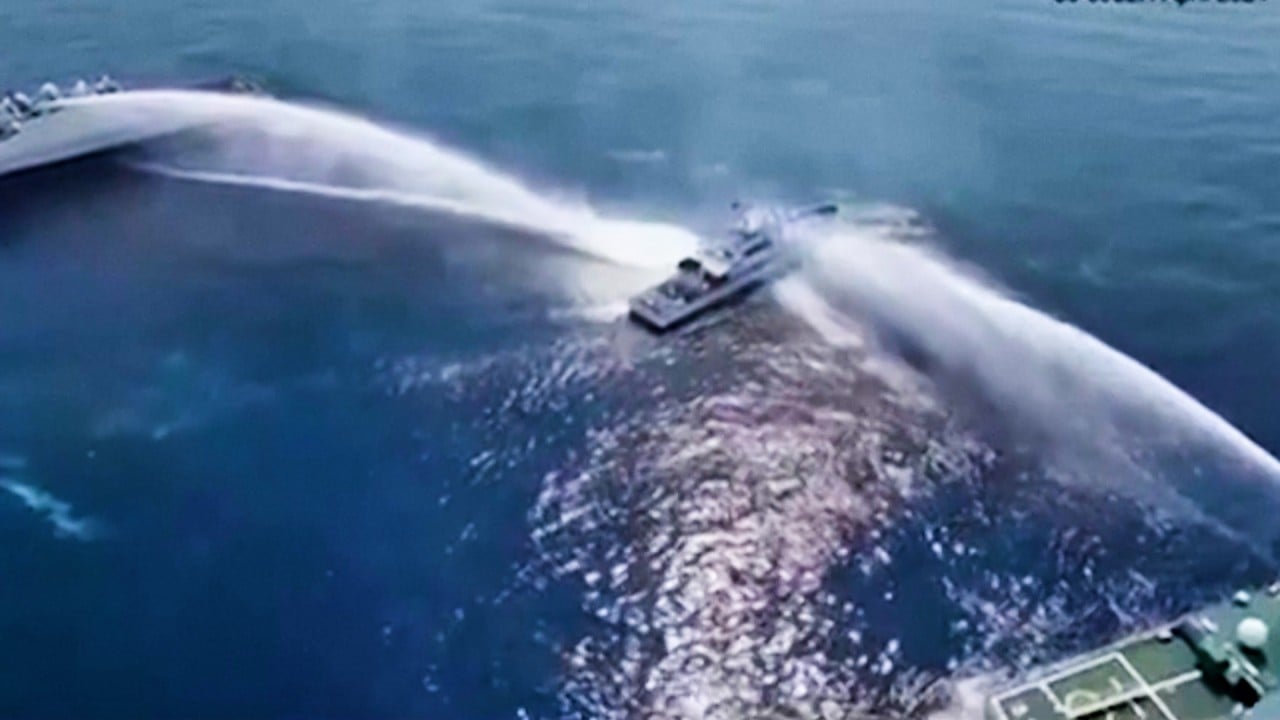“This is quite a distance and we are only firing within our maritime zones and our territory,” he added.
On April 22, more than 16,000 troops from the US and 5,000 from the Philippines, as well as Australian and French armed forces, came together for the start of the annual Balikatan exercises. For the first time, some of this year’s exercises are taking place beyond the 12 nautical-mile boundary of the Philippines’ territorial waters. The exercises will run until May 8.
Brigadier General Bernard Harrington, commander of the US Army’s 1st Multi Domain task force, told reporters after the live fire exercise, which also included artillery, machine guns and Javelin anti-tank missiles, that it was not targeted at any specific adversary.
When asked by reporters if China would react to the rocket launch since the drill was carried out facing the South China Sea, Harrington said, “As we work very closely with the Armed Forces of the Philippines, everything that we are doing is within the territorial boundaries of the Philippines.”
The 39th edition of the annual Balikatan exercises is being carried out under the Mutual Defence Treaty between the Philippines and the US, a 1951 agreement that calls on both countries to aid each other in times of aggression by an external power. The Pentagon has said it is prepared to assist Manila if it invokes the treaty amid threats from other nations.
‘Outside the scope’
Lawmakers in Manila on Wednesday defended the annual drills, saying they were only aimed at enhancing interoperability and strengthening partnerships and were not directed towards any aggressor country.
While acknowledging that some of the exercises were conducted in disputed areas, Senator Jinggoy Estrada, who chairs the Committee on National Defence, insisted they were not meant to challenge other nations’ actions, including China.
“These exercises are not designed for combat operations against other nations. Responding to or utilising it to impede China’s coercive actions against Philippine vessels is outside the scope of these joint military drills,” said Estrada, adding that Manila would continue lawful activities within its jurisdiction while promoting peace and stability in the region.
Another senator, Francis Tolentino, echoed Estrada in saying the purpose of the exercises was not to combat China’s territorial claims.
“We should trust the effectiveness of our alliances, not the unruly behaviour of those who intend to distract us,” Tolentino said.

It was the latest in a series of similar incidents that have taken place around contested maritime features within the South China Sea in recent months.
Senate Majority Leader Joel Villanueva said in a recent statement that China’s bullying tactics and scaremongering would not affect the Philippines’ sovereign rights over its exclusive economic zone.
“Whatever they do, it will never take away our sovereign rights over the West Philippine Sea (Manila’s term for the parts of the South China Sea that are included in the country’s exclusive economic zone), especially the Scarborough Shoal, which is clearly within our exclusive economic zone,” he said.
The Philippines ambassador to the United States, Jose Manuel Romualdez, said on Sunday that military assistance from the United States would allow the Philippines armed forces to be equipped to deal with any threats in the West Philippine Sea in the next few years.
“These will come little by little, but you’ll see all of it in the next three to five years. We’re seeing that, maybe before the end of [President Ferdinand Marcos Jnr’s term in 2028], our armed forces will be fully ready in our defence posture and strategy, which we are doing now with the United States,” Romualdez told a local radio station on Sunday.
China has competing claims in the South China Sea with the Philippines, Malaysia, Brunei and Vietnam.


